|
Last month I had the opportunity to go to Lisieux, France, and visit the tomb and home of one of my favorite saints, St. Therese of Lisieux. While visiting the Carmelite monastery where she lived, one thing that struck me was the hundreds of letters from soldiers fighting in World War I, letters thanking Therese for her intercessory prayer from heaven that miraculously protected them during battle. Not knowing how to thank her, these soldiers sent letters of gratitude to her religious order. It was these letters that opened her cause for canonization. St. Therese is now considered the patron saint of missionaries because of her powerful intercession. This experience brought me to reflect on the importance of intercession in our lives and how we can better live intercessory lives by imitating the model of St. Therese’s life. It seems that asking for intercessory prayers is a part of the daily life of many Catholics, but what is our disposition when this happens? It can be so tempting to half-heartedly ask someone to intercede for a person or situation in your life, not expecting anything to happen as a result. Even more often, I find myself saying yes to intercede for someone and then not putting the intention and time into the prayer that I should. I think the main cause of all of these roadblocks in intercession comes from not understanding the power our prayer has, and this is a lesson we can learn from St. Therese. St. Therese realized that our prayer has power because it is the cry of children to their Father, a Father who can’t resist saying “yes” to His children. She saw prayer not as bargaining with God, but as uniting her will and desires to God’s and asking that the same happen for whoever she was interceding for. Approaching prayer in this way radically changes the way that we intercede for others. We can step out and ask for prayer boldly and with confidence, because we can trust that the prayers will help bring about God’s will in our lives, not our own. Another key part of St. Therese’s model for intercession is that she saw intercession not as her own work, but as God’s work. St. Therese called her spirituality “the little way,” and it involves recognizing our own weakness and littleness before God and asking Him to sanctify us and bring us closer to Him through our littleness. One of the most fundamental keys to intercession is believing in the power of our prayers despite our littleness and imperfection. To understand the power of our prayer, we need to understand that God delights in us and desires to use us in our littleness. St. Therese explains that when we become little, we make room for God to work. If we apply this same principle to intercessory prayer, we see that no matter how small or simple the prayer, God wants to use it for His greater glory. God doesn’t ask us for a big complicated prayer but for the honest prayer of our hearts, no matter its size. Intercessory prayer is one of the most important parts of Catholic life, but often it can be overlooked. Looking at the model of St. Therese and her little way, we can learn that intercessory prayer is a beautiful part of our lives. Further, we see that it can make a real, tangible difference in the natural and supernatural realities around us when we offer our prayers with full confidence in God’s providence despite our littleness. St. Therese, pray for us, and teach us how to intercede like you!
0 Comments
 My wife and I made this prayer card for our parish to be distributed to parishioners this Easter. Our parish merged with another two years ago and we are still finding our way together as a new community. It is a time of transition, having lost familiar parishioners while gaining new ones along with a new pastor. We chose this passage from St. Paul’s letter to the Galatians because the verse speaks to a time of renewal, like spring, for our lives as Catholics today. The Eucharistic Revival is a time of renewal, a time to reawaken and deepen our relationship with Christ in the Eucharist. One opportunity to do this is by doing good to others. Sacraments and Social Mission: Living the Gospel, Being Disciples, a document created by the U.S. Conference of Catholic Bishops, explains that there is an intrinsic connection between the Eucharist and charity. The chapter on the Eucharist takes an excerpt from Pope Emeritus Benedict XVI’s encyclical Deus Caritas Est: “A Eucharist which does not pass over into the concrete practice of love is intrinsically fragmented” (no. 14). Amidst the frustrations and fatigue we bear due to what is going on in the Church and the world, God presents us with new opportunities to begin again. Like flowers blossoming and trees budding in the spring, our spirit is renewed each time we encounter Christ in the Eucharist. But flowers and trees need to be nurtured and so does our relationship with Christ in the Eucharist. To nurture costs love—giving our entire self. Christ gives his entire self in the Eucharist, and we are called to do the same in the world by being his hands and feet for others. Holy Thursday is special for me because I always hold on to the last two verses of the reading from John 13: “If I, therefore, the master and teacher, have washed your feet, you ought to wash one another’s feet. I have given you a model to follow, so that as I have done for you, you should also do” (Jn 13:14-15). Jesus gives us a model for discipleship. Reflecting on the Triduum, I think of how tired Jesus must have been throughout his Passion. He could’ve stopped at any point from exhaustion, but he persisted. If we truly desire to follow him, do we raise reasons for ourselves to stop? Perhaps it is frustration or fatigue. We are human and those reasons are to be expected, but we are not limited by or bound to them. To be disciples, Jesus calls us to never tire. Each day is a new opportunity to do something good. It does not have to be something big, but we need to start in order for that good to blossom. I offer a quote for reflection by Servant of God Dorothy Day: “Young people say, what good can one person do? What is the sense of our small effort? They cannot see that we must lay one brick at a time, take one step at a time; we can be responsible only for the one action of the present moment. But we can beg for an increase of love in our hearts that will vitalize and transform all our individual actions, and know that God will take them and multiply them, as Jesus multiplied the loaves and fishes” (Dorothy Day, Loaves and Fishes, 176). During this Easter and Eucharistic Revival, a time for renewal, I hope we reawaken and deepen our relationship with Christ in the Eucharist through small acts of charity. When we receive Christ in the Eucharist, may this relationship of love extend to charity towards those we encounter in our community. If we ever tire, may it be an opportunity to draw closer to Christ. Let us not tire of starting over again to do good. I hope our parishioners will find similar inspiration as we continue growing together as one faith community. Tomorrow, we celebrate the birthday of St. Vincent Pallotti, patron of the Catholic Apostolate Center and founder of the Union of Catholic Apostolate. St. Vincent Pallotti was born on April 21, 1795. How appropriate for the saint who lived and worked in the city of Rome to share his birthday with the traditional date for the founding of the city. To help celebrate his birthday, I have put together a list of some of his more interesting achievements and activities during his life. I hope that you too will be inspired by his life. 1) The Baptism of St. Vincent Pallotti St. Vincent Pallotti was baptized on April 22, 1795 in the St. Lawrence Church in Rome. This began his life in the church. 2) St. Vincent Pallotti on Holiday On his arrival in Frascati around 1805, St. Vincent Pallotti exchanged his new shoes for that of a poor boy. Giving away his new clothing to the poor would become a lifelong habit for the saint. 3) St. Vincent Pallotti Makes a Prediction While speaking with the young Giovanni Mastai-Ferretti in 1817, St. Vincent Pallotti predicted that he would one day be elected to the papacy. Mastai-Ferretti was elected Bishop of Rome on June 16, 1846. 4) St. Vincent Pallotti the Professor St. Vincent Pallotti was awarded two doctoral degrees in both theology and philosophy in 1814 and 1819. Teaching was one of the favorite activities of the saint. 5) St. Vincent Pallotti Showing Courage During the cholera epidemic of 1837, St. Vincent Pallotti organized a barefoot procession of religious. This action was penitential and showed that they were not afraid of the disease. 6) Catholic Apostolate Received Church Approval St. Vincent Pallotti received approval for the Catholic Apostolate from the Church in 1835. Pallotti also received support for the Catholic Apostolate from Pope Gregory XVI when others objected to it. 7) St. Vincent Pallotti the Chaplain Beginning in 1838, St. Vincent Pallotti served as a prison chaplain in Rome. He often worked with the condemned, saving many souls. He had a true willingness to serve all, especially the poor and the marginalized. 8) St. Vincent Pallotti the Peacekeeper St. Vincent Pallotti stopped a riot in the Trastevere neighborhood of Rome. He implored the people to stop rioting by showing them an image of Mary, Mother of Divine Love. 9) St. Vincent Pallotti Preaches one Last Time On the last day of the octave of the Epiphany in 1850, St. Vincent Pallotti gave his final sermon. 10) St. Vincent Pallotti Dies In 1850, St. Vincent Pallotti gave his final blessing to his followers. He showed great courage even in the face of death. There are many more stories about St. Vincent Pallotti that you may find interesting. Check out our St. Vincent Pallotti Portal to learn more about our patron and his many works. **This post was originally published on 1/21/2021**  The hope of the Resurrection is the cause of our rejoicing during the Easter season. The Risen Christ offers us peace, as he did to the frightened disciples locked in the Cenacle or Upper Room. The Cenacle itself becomes then a place of deeper community that leads to mission. The mission Christ gives is not our own. It is his. We share in it. We go forth as witnesses of the Risen Christ from the community, are sent by the community, and return to the community. This must be done in integrity through not only saying what we believe but living it. Pope Francis recently provided some reflection on this: “Many Christians only say they believe, but they live something else, as if they did not. And this is hypocrisy. The opposite of witness is hypocrisy.” (General Audience on March 22, 2023) No one wants to be accused of being a hypocrite. Few of us will perfectly live the life of faith. Witnessing Christ is not about being perfect, but by being perfected by him through ongoing conversion of heart and mind. This is accomplished through the grace of the Sacraments provided by the community of faith, the Church. As St. Vincent Pallotti taught, we are called to cooperate with this grace so that we can witness the Risen One more authentically to the world as apostles. May the charity of Christ urge us on! Blessed Easter, Fr. Frank Anyone who wants to improve his or her spiritual life has to face temptation. Even Our Lord Jesus Christ had times of temptation. One of them was after His Baptism, when the Spirit took him into the wilderness, where he was tempted by the devil (Lk 4:1-13). In this text, we can see types of temptations and how Jesus faces them. However, today I would like to consider with you why we have temptations in our lives. Of course, more important and wiser writers have already written many texts about this topic, but I want to share with you my own experience of how the Holy Bible helps me deal with temptations.
In the beginning, we should emphasize that temptations have been present, are present, and will continue to be present in our lives, especially when we want to be close to God. I remember very well that when I was thinking about my vocation, I often asked God about some sign. I wanted to be sure that my vocation was to be a priest. I had prayed very fervently about it and I received a sign. It was a fragment from the Book of Sirach: “My son, when you come to serve the Lord, prepare yourself for trials. Be sincere of heart and steadfast, undisturbed in time of adversity” (Sir 2:1-2). I was shocked at that time and I understood that everyone who wants to serve God should prepare himself for trials. I think that we might look at these words not just as advice for someone who wants to be a priest or religious. Rather, they are for everyone in the Church. Almost two hundred years ago, St. Vincent Pallotti presented the idea that everyone is called to be an apostle. It means that everyone is called to serve God by sharing his or her faith, to be close to Him, and finally to be holy. Documents of the Second Vatican Council confirmed this idea. Therefore, if we want to be with God, we should prepare ourselves for trials. In our spiritual life, temptations might be one of the trials. When we look at temptation as a trial, we can also recognize at least two important purposes for trials. They can make us a better version of ourselves and lead us closer to God. The first purpose of trials we will find further in the Book of Sirach. The author of this book writes: “Accept whatever befalls you, in crushing misfortune be patient; For in fire gold is tested, and worthy men in the crucible of humiliation” (Sir 2:4-5). These are awfully hard words, but they state two simple truths: for God, we are like gold, and we are dirty. In other words, we are very valuable to God, but we need to be cleaned. Consequently, the trial is like the fire that cleans us. St. Peter has a similar idea: “In this you rejoice, although now for a little while you may have to suffer through various trials, so that the genuineness of your faith, more precious than gold that is perishable even though tested by fire, may prove to be for praise, glory, and honor at the revelation of Jesus Christ.” He is speaking about the faith that is tested by fire. Therefore, we can come to the conclusion that our faith, hope, love, and intentions must be tested in order to make us better. We need to be cleansed from our weaknesses and sins, and after that, we will shine as gold. The second purpose of trials is to bring us closer to God. We can understand this better when we read the Bible attentively. The Holy Bible has thousands of examples where someone had gotten in trouble and he or she looked for help from God. Among multiple examples, I would like to share just one which is important for me. It is from Psalm 57: “Have mercy on me, God, have mercy on me. In you I seek refuge. In the shadow of your wings I seek refuge till harm pass by” (Ps 57:1). The author of this psalm knows that God can help him, so in the time of trial he is not hopeless, even though it seems terrible: “I lie in the midst of lions that greedily devour the sons of men; their teeth are spears and arrows, their tongues sharp swords” (Ps 57:4). Times of trial become for him a time when he wants to be nearer to God. Moreover, he is certain that he will receive help: “He will send [help] from heaven and save me, he will put to shame those who trample upon me. God will send forth his steadfast love and faithfulness!” (Ps 57:4). These words are really helpful for me because they give me hope that God is not far away from me. In conclusion, I know that we can find explanations for why temptations and trials are in our lives. The most important lesson is not to give up and to keep being near to God in that time. For much of the past year my work as an auditor has had me traversing the country each week by plane, train, and automobile to attend to various client needs. The destinations often change depending on the assignment; one week it might be Philadelphia and the next it might be Los Angeles, one month it could be Denver and the next Minneapolis. While exploring new cities and meeting new people is exciting, I’ve also found incorporating the logistics and time it takes to go from point A to point B each trip adds another layer of exhaustion onto what is usually an already busy schedule. On a recent Monday morning flight, while praying Morning Prayer, I came across this reading from Isaiah 55:6,8-9; Seek the LORD while he may be found, call upon him while he is near. For my thoughts are not your thoughts, nor are your ways my ways—oracle of the LORD. For as the heavens are higher than the earth, so are my ways higher than your ways, my thoughts higher than your thoughts. I looked out my window at the view from 35,000 feet and saw an expanse of plains surrounding small midwestern towns that eventually morphed into suburbs and cities. In each locale there were thousands of people going about their day, unaware of the part they played in this picture I saw. “For as the heavens are higher than the earth, so are my ways higher than your ways.” I paused and thought about how God’s view of our own lives must look something like this. We, just like the people on the ground, go about our day unaware of the part we play in the bigger picture He sees. So often I find that I allow the stresses to become my sole focus of the day: a difficult audit assignment, a cancelled flight, maintaining relationships with friends and family while on the road, etc. While these daily stresses need our attention, in the big picture of our lives they are small blips on the radar that we can’t allow to distract us from seeking the Lord. Ultimately it is our continuous pursuit of God that allows us to press through our daily challenges, large or small, trusting in the knowledge that He has the view of our lives from 35,000 feet and will never fail us. Questions for Reflection: Is there an instance or time in your life when things didn’t go according to your plan? Has God’s way of doing things in your life ever proven more fruitful or beneficial than you could have anticipated? **This post was originally published on 4/26/2018** “Rejoice! Hidden within your life is a seed of resurrection, an offer of life ready to be awakened.” -Pope Francis The world in which we live is filled with distraction and noise. I realized this in a deeper way as a new mom nursing my newborn at all hours. During those late night feedings, I needed something to keep myself awake and found myself gravitating towards my phone more and more. It was easy to hold and look at in the dark, and I found it nearly impossible to concentrate on reading a book, let alone holding it open as my newborn moved about. By the time Lent rolled around, I had been watching online TV episodes, checking my various social media feeds consistently, or scrolling through house listing websites. In our culture, this type of electronic consumption is easy to fall into. And while these sites or activities are not necessarily wrong or evil, I felt that I was more and more consumed by things of this world. In prayer, I felt the Lord asking me to be consumed with Him rather than by materialism, technology, or my own desires. What we consume defines who we are and what we become. What started out as a way to keep myself awake in those exhausting first weeks and months of motherhood had become a small addiction. What if instead, I used those minutes and hours to pray, to be still with my thoughts, to be present to my son? I had a quiet Lent. Formally, I gave up “scrolling.” I did not look at social media feeds, online shopping websites, or TV shows. I also limited my consumption of music and movies. I felt that I had truly entered a desert and made an ongoing “silent retreat” without completely removing myself from the world. I was becoming a “contemplative in action” and realized that even as a parent and married person, I could still carve out time for Christ each day through silent reflection. Instead of consuming media, I prayed and I was silent. I used my phone only for Scripture reading or Catholic reflections. I prayed the Rosary and the Divine Mercy Chaplet. I read spiritual books. I thought of all the friends and family that had asked for my prayers. I offered up this media fast for them and for the needs of the world. This was hard. I noticed how many times my hand gravitated towards the screen. I noticed how much time I had spent behind one. Now that I have emerged from the season of Lent, I can’t help but wonder how I’ve changed. In his homily at the Easter Vigil this year, Pope Francis spoke of the changed faces of Mary Magdalene and the other Mary after they visited Christ’s tomb. The two brave women ventured out in the early hours of the morning “pale and tearful” and “walked like people going to a cemetery.” They had not yet encountered the Risen Lord. When they arrived, they were met with miraculous, life-changing news: “He has been raised just as he said!” The women leave rejoicing and run immediately to tell the disciples, to evangelize. Their faces are completely transformed. This leads me to reflect, “How has my face transformed this Easter season? Have I emerged from the tomb of Lent rejoicing?” Lent and Easter are about transformation—going from the tomb to new life. Christ is raised from the dead and extends this life to us all. He has opened the doors to our salvation. We don’t have to wait for death to experience this new life. By being consumed by Christ Himself, through prayer and most powerfully through the reception of the Eucharist, we are enabled to become Christ-bearers and share the joy of new life with all we encounter. Pope Francis invites us to experience and live this transformation in our everyday lives, saying: The heartbeat of the Risen Lord is granted us as a gift, a present, a new horizon. The beating heart of the Risen Lord is given to us, and we are asked to give it in turn as a transforming force, as the leaven of a new humanity. In the resurrection, Christ rolled back the stone of the tomb, but he wants also to break down all the walls that keep us locked in our sterile pessimism, in our carefully constructed ivory towers that isolate us from life, in our compulsive need for security and in boundless ambition that can make us compromise the dignity of others. After 40 days of penance and sacrifice, it’s tempting to go back to our old ways—to “carefully constructed ivory towers” and a “compulsive need for security.” “We can grow accustomed to living with the tomb,” Pope Francis cautions. This Easter season, we must decide to leave the tomb: to stay present, to pray, to choose to be consumed by God. I have learned that in so doing my life is made richer and more meaningful. When consumed by God, I am better able to be present to and love others. As we continue our victorious journey through the Easter season, I invite you to consider how your life has changed as a result of your Lenten journey. Have you emerged from the tomb? How has your face changed? For more resources on Lent and Easter, please click here. **This post was originally published on 5/2/2017**
It’s amazing to think that we have wandered with Jesus in the desert for nearly forty days now. I have taken this Lenten season to feel more connected with Jesus and strengthen my relationship with him in prayer. This past Sunday, the Church celebrated Palm Sunday, which commemorates Jesus’ journey into Jerusalem and marks the first day of Holy Week, one of the most important times in our faith. The rest of this week consists of Holy Thursday, Good Friday, Holy Saturday, and Easter, all of which are wonderful times to reflect on the strength and love shown by Jesus during his final days, his Death, and his Resurrection. The Gospel for this past week is one that I always find interesting to hear, as it gives a lot of insight into some of the traditions that we see during our usual Sunday services. For example, in this Gospel we hear about the Body and Blood of Christ at the Last Supper, “While they were eating, Jesus took bread, said the blessing, broke it, and giving it to his disciples said, ‘Take and eat; this is my body.’ Then he took a cup, gave thanks, and gave it to them, saying, ‘Drink from it, all of you, for this is my blood of the covenant, which will be shed on behalf of many for the forgiveness of sins. I tell you, from now on I shall not drink this fruit of the vine until the day when I drink it with you new in the kingdom of my Father (Mt 26:14—27:66).” While not the direct translation said during Mass, this is something that we hear every time we are at church, something that is just ingrained in the flow of Mass, yet here, in one of the most important readings in our faith, we see how it first began. I like to imagine myself as a fly on the wall during the Last Supper. How did the apostles react? What was their body language? Were they scared, confused, or excited to be with Jesus? Jesus knew what he was about to face on the Cross; he knew about his eventual Death and Resurrection. Yet, he knew his work before those events was not done; he had to continue to preach to the apostles. In hindsight, probably no one would’ve expected him to do that; he was facing death! Nowadays, people will say, “If you knew you only had one week left before you died, what would you do?” The usual answers are things like going on a fancy vacation, winning the lottery, and completing items on one’s bucket list, but the reality is that most of us don’t know when our time will come. On the contrary, Jesus did know what his fate would be when he entered Jerusalem. He knew the importance of his death on the Cross, and he knew it was important for him not to stray from his intentions. The strength shown by Jesus in this Last Supper is one that few could’ve shown, and it is important for us to recognize as we continue through Holy Week. As we finish up our 2023 Lenten season, I hope that you all have taken some time to deepen your relationship with Christ and reflect on the importance of the season in your own heart. May these last few days of Lent guide you through some of the darkest days of our Church into the glory of the Resurrection. I hope you all have a wonderful Easter celebration!
|
Details
Archives
July 2024
Categories
All
|
About |
Media |
© COPYRIGHT 2024 | ALL RIGHTS RESERVED

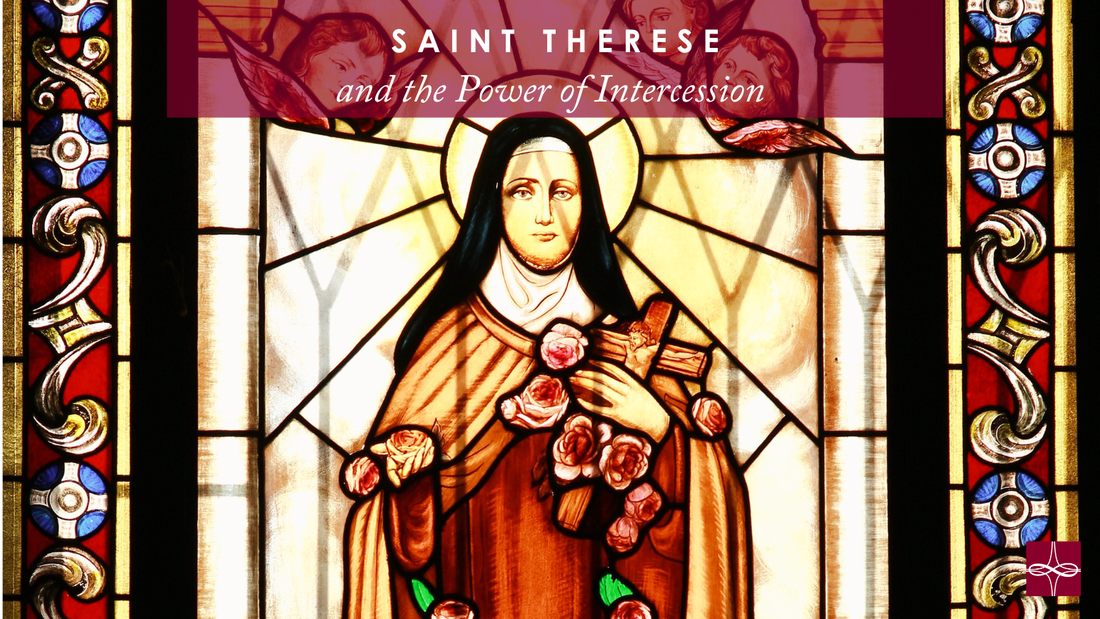

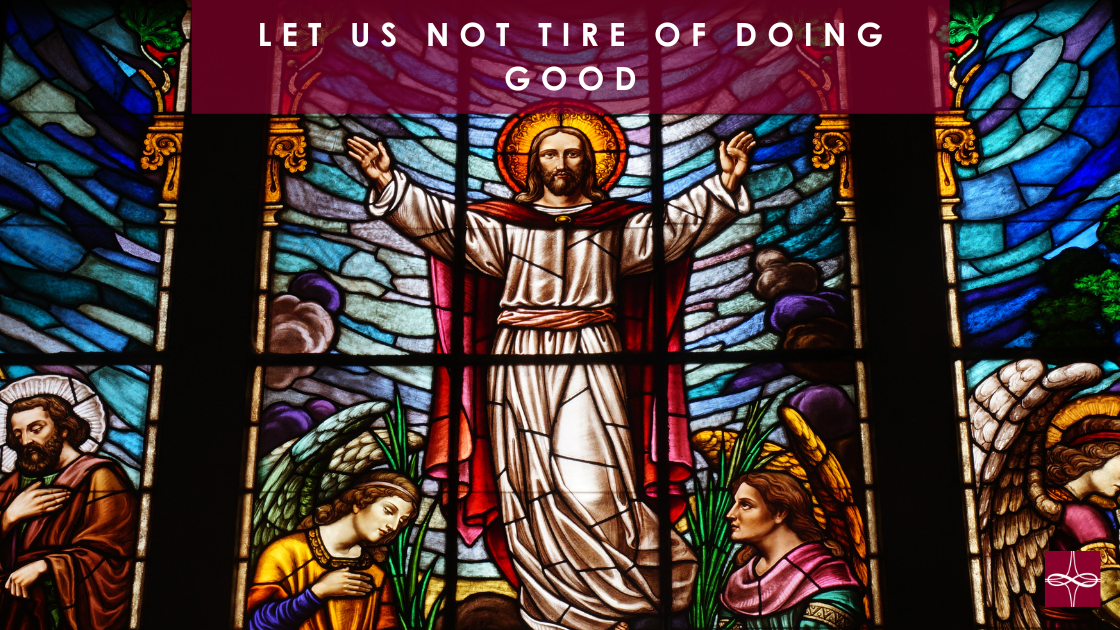

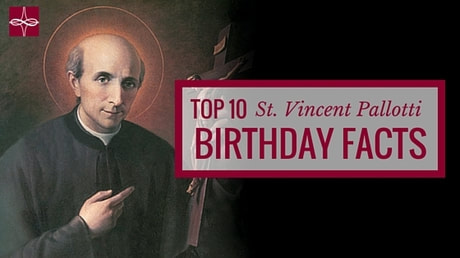
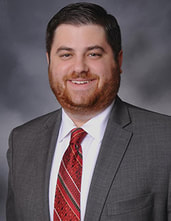
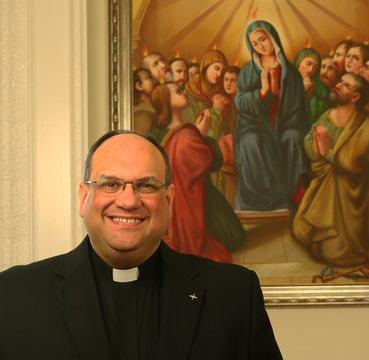
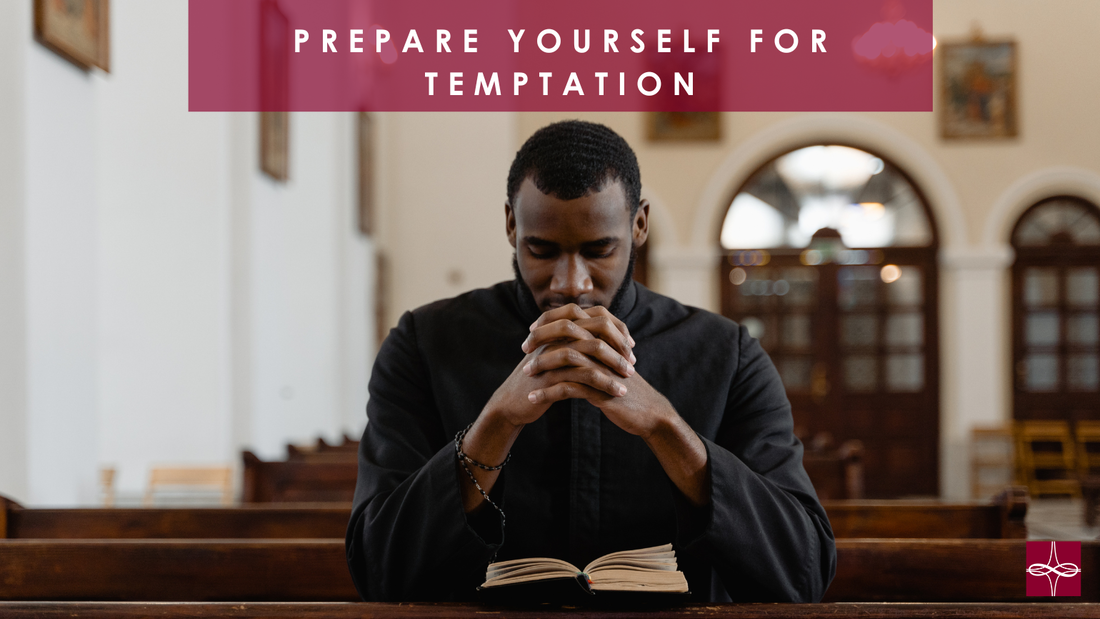
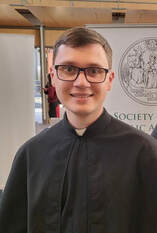


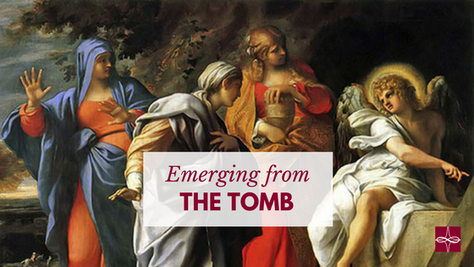

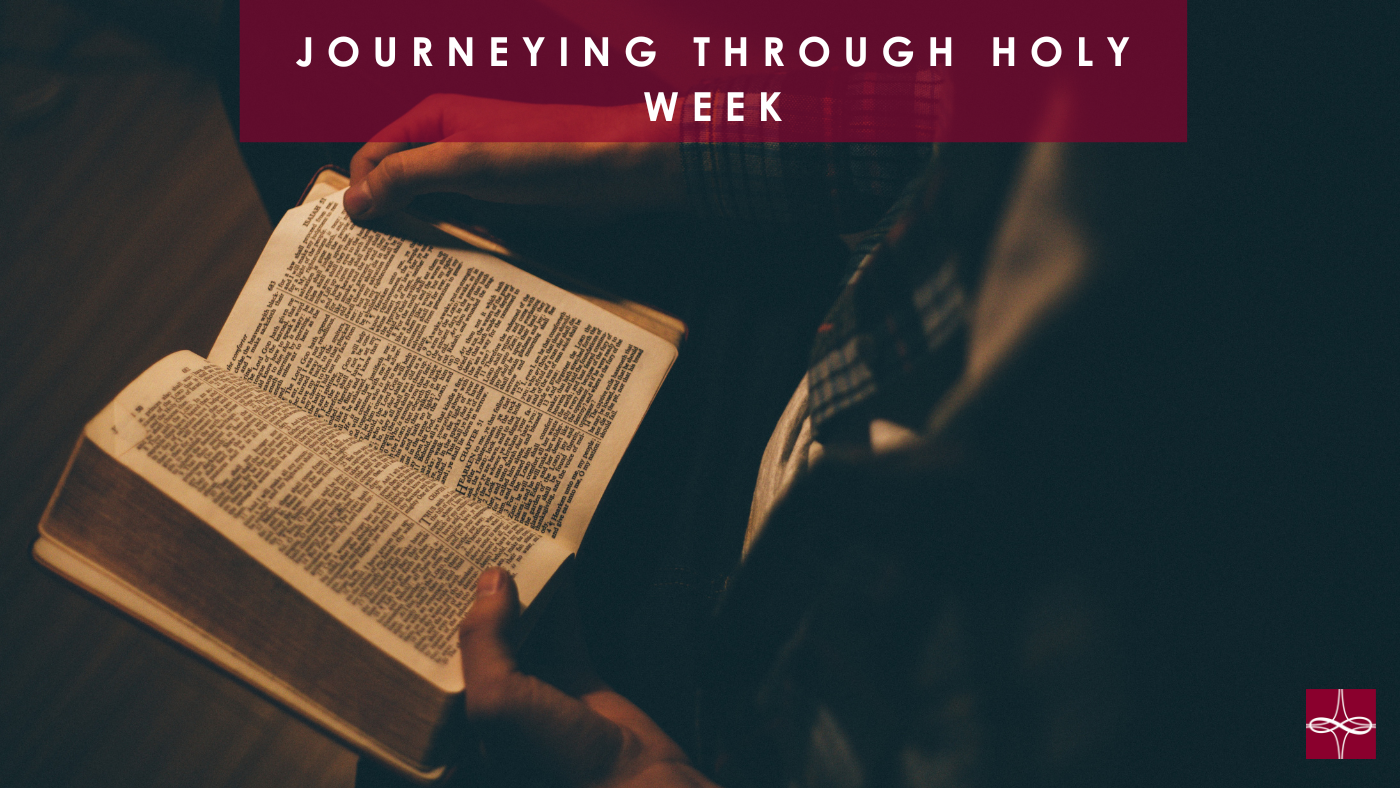

 RSS Feed
RSS Feed